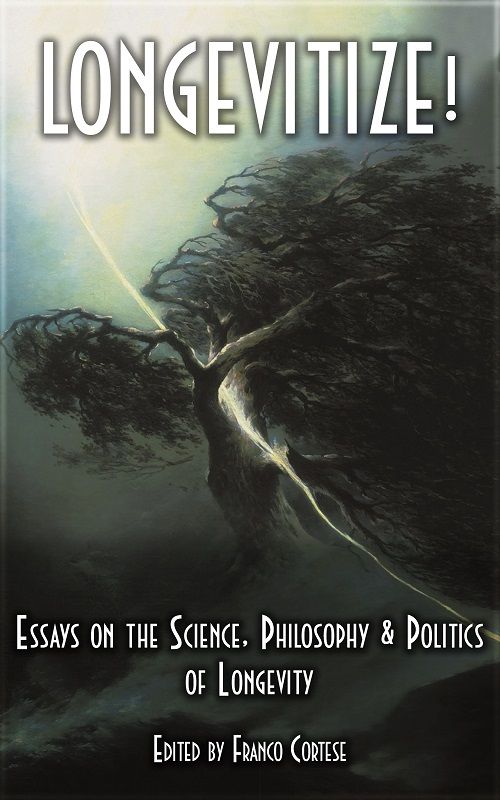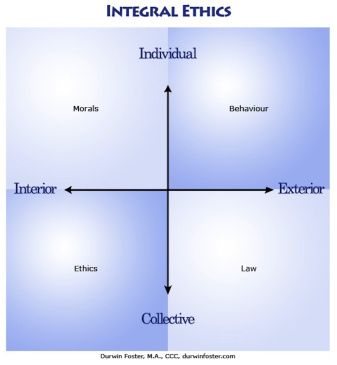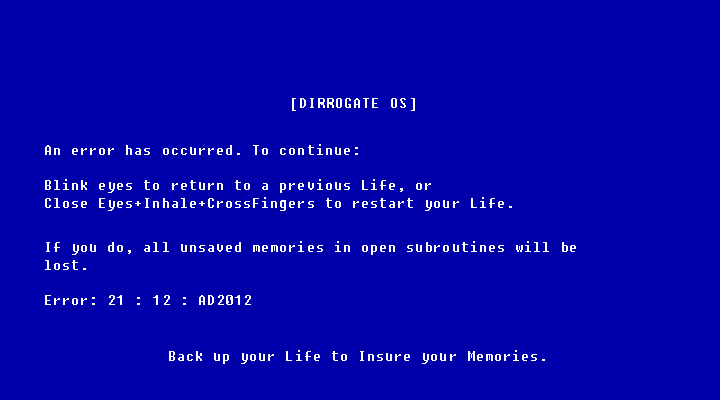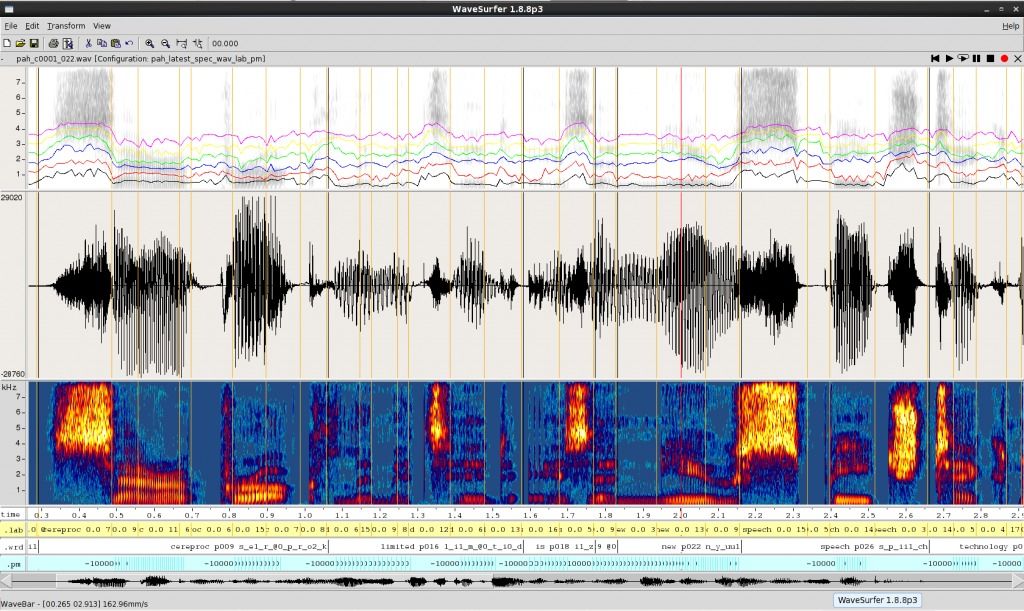As the Western media and governments continue poking fun and demonizing a very misunderstood country, there are a group of people who are taking it upon themselves in ignoring the propaganda and instead reaching out with compassion and understanding. These people are visiting and working in North Korea. They’re not North Koreans, but the love and connection they’ve gained with the North Korean people is real and deserve to have their stories told.
DMZ Northern Commander and former American commander, Michael Bassett, hug during the April 2013 Period of Brinksmanship. (Photo credit Joseph Ferris)I’ve interviewed a few people of importance in gaining greater insight into the country, its people, its military, and its government. It is my goal in providing an open venue for them to speak out and hopefully gain enough attention for others to follow suit.
Here I’ve interviewed Michael Bassett and Felix Abt. Mr. Bassett is a decorated Army Veteran who holds a BA in International Communication from the American University in Washington DC, a graduate certificate in North Korean Affairs from Yonsei University’s Graduate School of International Studies in Seoul, South Korea, and is currently working on his MA in Public Diplomacy from the American University.
He’s served several tours on the DMZ Western Corridor, and has worked in South Korea for unification NGOs. He has been to North Korea several times since 2004 and is a widely published Asian Affairs analyst, a North Korean Affairs specialist, and is known for practicing public diplomacy by facilitating cultural diplomacy projects in the DPRK.
Mr. Abt is a Swiss entrepreneur and expert on doing business in North Korea. He’s the author of A Capitalist in North Korea: My Seven Years in the Hermit Kingdom. From 2002 to 2009, he worked as one of the few Western businessmen in North Korea. He was co-founder and first president of the European Business Association in Pyongyang, a de facto European Chamber of Commerce and the first foreign chamber of commerce. He also co-founded the Pyongyang Business School, imparting market skills in the next generation of leaders.
Previously, Abt worked all over Europe, Africa and Asia as a senior executive for multinationals such as F. Hoffmann-La Roche and the global engineering giant, ABB Group. In 2002, ABB appointed him first as resident country director in North Korea. He went on to become a point man for Western investments in the country, representing several multinational corporations and even founding a business of his own. He is a shareholder in several North Korean joint ventures, and a member of the boards of directors of SMEs of several countries.
Let’s get this out of the way first. Could you tell me your name and what your professional relation is with North Korea and its inhabitants, alongside how many years you’ve been doing so?
Felix Abt: I’m Felix Abt. I have lived and worked for seven years in North Korea and have been doing business with it for the last 11 years. In my e-book book A Capitalist in North Korea, which will also be published as a paperback soon, I’m telling my story. Currently I’m a shareholder in joint venture companies in the DPRK and I’m involved in trade and new projects.
Michael Bassett: I’m Mike Bassett, thanks for having me, BJ. For nearly seven years I’ve been studying North Korea in college through various academic lenses. Because all I knew about North Korea was acquired in my years on the DMZ in the US Army; I realized that I probably didn’t understand North Korea in its proper context. So as an undergrad I began by applying sociological theories to my understanding of them. Namely I began trying to decipher rhetoric from reality, by trying to understand human perceptions based on The Social Construction of Reality Theory. I also started studying US foreign policy around this time. From there my thinking progressed and shifted towards “constructivism,” which is a theoretical approach to understanding international relations; particularly individual state actors and their behavior. From there, I applied my “prism of understanding” to practicing Pyongyangology after I received a graduate certificate in North Korean Affairs. Pyongyangology is a Cold War-era methodology of understanding countries with whom we have little communication with, and who are generally considered to be our enemies.
Pyongyangologists basically look at an actor’s behavior on histograms and uses small bits of information as “indicators” from something such as a photograph, or sentence, in State propaganda or policy, and then compares it to trends and patters over time. Pyongyangology helps analysts to understand who they are based on their behavior. It’s not a complicated science to master, especially if you constantly pay attention to their trends and patterns over a long period of time. There are many Pyongyangologists — whom I call “The Oracles”. When the unprovoked bombing of Yeonpyeong Island happened, I thought it had nothing to do with anything else other than North Korea trying to convince their population of Kim Jung Un’s military “leadership capabilities.” Kim Jung Un was, at the time, a young Four-star General in charge of an Artillery Corps. Kim Jung Il had a stroke and elections appeared inevitable as Kim Jung Il’s health took a rapid decline. They needed “a leader whom they believed could protect their country” (I argue that Kim Jung Un was chosen and groomed for succession since he was a boy). Unprovoked attacks are unacceptable behavior, but I don’t think they meant for anyone to get killed. It’s important to be able to understand that in science, objectivity separates the fact from the fiction. In this case it helped me prove that North Koreans were rational actors and Kim Jung Un was preparing to take power. Pyongyangology isn’t an exact science, so I had to take it another step because it can be inaccurate sometimes and doesn’t really have an impact on anything.
I developed a pedagogical understanding of North Korean behavior and international perceptions/misperceptions of their historical development and worldview (through their eyes). I see them clearly enough to know that there are more effective ways of approaching the conundrum on the peninsula. Within academia and scholarship, “constructivism” and “smart-power” are on the cutting edge of contemporary international relations, and we have only slowly begun understanding and defining them. Training in public diplomacy is the most recent tool that I’ve acquired to my toolkit. I’m about one semester short of earning an Executive Master’s degree focused on Public Diplomacy. My pedagogical understanding and my toolbox have inspired me to facilitate cultural diplomacy projects in North Korea. I now try to take anyone who wants to go, and set up anything I can for them, to create the “space at the end of the bridge for handshakes and hugs.” As cliché as it sounds, my extensive education and experience has mainly taught me the importance of “handshakes and hugs.”
There are other non-State actors who do similar things there and we’re a small crowd that knows of each other. North Korea entered my radar when I was young because my grandfather told me about the orphan he took care of during the Korean War. I have their picture together in my office. My first “interaction” with North Koreans was on the DMZ, where I was stationed for several years and alerted to Imjin River standoffs on a regular basis. My relationship and views of North Koreans has obviously evolved over the years that I’ve made perpetual and relentless, often uncomfortable attempts at trying to understand and interact with them. Living in South Korea for seven years total, and having a half-South Korean daughter has also given me a unique vantage point in the situation. I put politics aside and get together with North Koreans and focus on the things we have in common. That’s essential to understanding their nature in its entirety. I often get a lot of criticism for going to North Korea and doing this. I do it because these are things that bond people together and allow people to grow together and build trust and understanding. If you really want know about anybody, you have to go break bread with them. These endeavors are risky for me – there, and here at home; as well as costly on a financial and personal level. You could call me an activist scholar. I’m only following my heart and being inspired by examples from prestigious role models. I’m doing what I believe in and what I’ve trained to. Nothing more.
Given your extensive visitation and studying of the northern region of Korea, how would you best describe the North Korean people – a collective goal perhaps; their thoughts on their leaders, past media bias on both sides; how they portray foreigners, especially Western ones?
Abt: North Koreans are better informed about the outside world than the outside world about North Korea. Since the U.S. have rejected many times the DPRK’s request to sign a peace treaty and to normalize the relations with the DPRK this country and its people feel stuck in a state of war and under threat to an extent perceived paranoid by Westerners. Westerners and other foreigners are therefore often considered as potential spies and trouble makers.
In a society as strongly Confucian as North Korea, people show respect to the leaders and expect that they take care of their needs, which is often misunderstood by Westerners living in, at least formally, more egalitarian societies.
Bassett: North Korea’s main goal is survival of the Kim regime, the State, and its people – in that order. In this sense, I call them a Machiavellian society. Everyone in North Korea understands the goal of survival and that their leaders sometimes have to make tough choices to protect the security of their state sovereignty. “Survival” is a central part of their collective psyche, like warriors who develop similar instincts in combat. They suffer a collective trauma from war, isolation, and starvation, rolling natural disasters, and perpetual cycles of proxy war “demonization” by the outside world. North Koreans, understandably, have trust issues and are paranoid, but when you can get past those issues with them, you begin to feel how genuine and sincere at heart they really are. They’re a very traditional society and they take great pride in their ability to maintain their traditional purity. When you realize the tremendous efforts they’ve endured to survive against all odds, you can’t help but be touched by their struggle.
North Koreans are people just like anybody else, but they are also products of their historical environment and also of an external environment that doesn’t understand them. Any country on the planet that experienced the same historical circumstances as they did would end up in the same state as them, in my opinion. All the good, all the bad, would be no different. They are misunderstood. They don’t want anything to do with violence, but like a porcupine, they show their “needles” when they feel threatened. Their bellicosity is a deterrence mechanism as well as a mechanism of survival. In reality, they rarely act outwardly aggressive without provocation. Learning to understand North Koreans is not much different to me than learning how to understand an abused child who has grown up with some emotional issues. They are very smart, very rational, and a little “emotionally sensitive.” But once you build some trust with them, they open up to you and become “friends for life” as Rodman said. They’re like the outcast on the playground that behaved badly because they got bullied a lot because nobody understood why they were an outcast in the first place. I’m like the guy at school who invites that kid to sit down for lunch and shoot some hoops afterwards because I want to help them fit in. I want to help them get better and live a normal life again someday. Maybe that’s why Rodman really is the perfect man for the job. He understands them without scholastic rigor because he is like them in many ways.
Their leadership is quite rational and genuinely cares about their people. I used to criticize them for having it considerably better than the lower classes of the population, but I realized that every country has elite classes who hold power and live lavishly while others live oppressed and in deprivation; so I couldn’t carry on with that criticism and still call myself objective. Ethnocentrism is a root of subjectivity and is a factor that contributes to our misunderstanding of a lot of things beyond our borders. North Korea is the ultimate mirror-state, meaning that we in the “Western world” do everything that we criticize them of doing, but we only hold up their reflection. We can compare anything they do to something that we have done at one point or are currently doing. I can’t demonize them and still call myself objective, and nobody else can either without being hypocritical on a direct or indirect level.
Kim Jung Un is a game changer, in my opinion. I’m sure you’ve read my publication on that. In my experience, westerners are starting to be portrayed differently in North Korea than in the past. Their propaganda art that was created decades ago still exists and portrays Westerners as scary-looking evildoers, but these days their state-run newspaper, Rodong Shinmun, is starting to portray westerners with more humanity, while still demonizing our governments when they’re angry with them. They focus on the positive things of our culture, like Disney and sports. It’s not uncommon to see some Disney backpacks on kids or Disney movies on TV; or to see something about sports diplomacy in their Rodong Shinmun’s.
How would you describe the socio-economic conditions of North Korea as a whole? And what would you propose for foreign countries and their governments in handling and treating North Korea to ensure socio-economic stability?
Abt: North Korea is a developing country which has allocated a very significant portion of its GNP to defense for the reasons mentioned before. A comprehensive security agreement as proposed by Nautilus and others is necessary to reduce tensions and to free resources for economic development. Such an agreement would also support the reform process which would allow more small and medium-sized enterprises to emerge, run by private entrepreneurs which would create numerous jobs and give a substantial boost to the economy as it did in China and Vietnam.
Bassett: Simply put, to me, North Korea is still largely maintaining an agricultural revolution, while barely maintaining an industrial revolution, and trying to skip ahead to the technological revolution. They’ve placed great emphasis on science, business, and education and are constantly finding ways to produce and develop, despite all obstacles. Even during total sanctions their GDP increased by about 1.6%. I went to an International Trade Fair in Pyongyang this Spring and they had everything for sale from ionizer watches to smoking cessation products, to dozens of styles of in-country-produced motorcycles, cars, trucks, and heavy machinery. While in the Rason Special Economic Zone I went to the Triangle Bank, exchanged Chinese Rinminbi for North Korean won, and did some shopping in the Free Market. It was basically a North Korean style Wal-Mart. They had basically anything you could find at a regular Wal-Mart. North Koreans have different classes of people. Their socio-economic class is dependent on loyalty to the regime. Those who have familial connections are trusted more to run restaurants, factories, farms, shops, malls, etc, because the economy can easily lead to the downfall of the regime. They maintain a capitalist type of economy while simultaneously being a Machiavellian socialist “monarchy” because they’ve mastered the art of rent-seeking. The government puts loyalists in charge of business and fills the ranks of the entrepreneurial class with their relatives and part of it goes back to the regime who overseas operations. Because of this delicate balance of survival, sovereignty, and development; the division of classes in a country structured so complexly, became a “necessary evil” that they live with to maintain their existence.
Many North Koreans, contrary to popular belief, are quite satisfied living a traditional and simple life, though their “basic needs” are developing. They want more stuff. Kim Jung Un is trying to appease his people and he’s walking a tightrope between providing security, and enduring sanctions. Thus, their conditions are still very harsh much of the year. People still die from simple injuries or preventable situations, though not as frequently as in the past. Freedom of the press is low, although writing and creative writing are very respectable professions because Reading is one of the most popular activities in North Korea and thus quality writers are in high demand. Every writer still follows some “regime guidelines” but they still have a lot of contextual freedom. North Koreans go without some basic necessities like hot water, electricity, some medicinal care. 5 percent of the population in North Korea is malnourished compared to 17% in the rest of Asia. (http://bit.ly/19nD3aZ ‚ http://bit.ly/16Itrxm) Their justice system is improving, but still sentences people to life imprisonment, hard labor, kin crime persecution, and execution. Any country who does this is violating basic human rights of a citizen, criminal or not.
Still, these are human rights issues because anything related to quality of life can be seen as a human rights problem, and their human rights issues are partially a byproduct of failed policy and political sanctions designed to influence the regime’s behavior – or more bluntly; sanctions are designed to cause State collapse. I’ve never really believed in “regime changing” because it never ends well. Anytime we have collapsed a State, the people have become worse-off and the regions end up in a state of chaos and deprivation for decades. For this reason, it’s my opinion that sanctions, (and State collapsing) violates the United Nation’s Universal Declaration of Human Rights and thus, sanctions should be lifted so States can trade and interact with North Korea more freely if they choose to. North Korea would develop at the pace South Korea did over the past thirty years if the State had the same opportunities and support South Koreans have. People will retort by saying that the South never had nukes or violated human rights, which is why we supported them and not the North. In reality, it was a power-balancing proxy-war. Also ignored are the facts that the USA once pressured South Korea to develop nukes while ignoring their dictatorial human rights abuses.
In many developing countries we’re witnessing technological advancement, from a growing usage of cell phones and laptops, adding in millions of more people into the online collective hemisphere of intellectual exchange. Where do North Korea and its people stand on this? Are they, too, advancing technologically and, if so, in which technological sectors?
Abt: This, too, very much depends on how secure the country feels. As long as any opening is perceived as creating a window of opportunity to those who want regime change and overthrow the DPRK, free access to internet by the general public will be considered as highly risky and undesirable. By allowing mobile telecommunication countrywide, the country has contributed to the development of distant rural regions.
Bassett: North Korea is embarking on a technological revolution. It’s hard for me to say specifically when this shift began, but Kim Jung Il had a state-of-the-art 27” Apple iMac in the train that he died in. He used this for running the regime more efficiently. The leadership used to be the only ones with stuff like this, but now technology is pretty common in schools, businesses, factories, libraries, museums, and cultural centers. I dare say 85% of the families in the country have access to cell phones, computers, TV’s, and DVD players. The intranet on their phones and computers can access North Korean media including news, music, and some video. They can text and I believe they can even transmit intra-mail messages. Nearly all sectors are using new technology in some form. North Koreans get a lot of use out of the satellite that they’re so proud of. Schools are benefitting greatly because now they have broad access to information they can use to strengthen their educational programs, producing smarter students who will grow be more informed leaders in their sectors. Interagency coordination is occurring and they’re becoming more efficient at dealing with crisis, and responding faster to it. Solar panels mitigate power shortages, and advanced irrigation methods are helping their crops survive draughts. I can’t comment with expertise on their light-water reactor but their “official story” is that “because of oil embargoes, they’ve had to shut down two oil refineries, which has resulted in a major portion of the population having to endure without electricity for almost eight years.” This reactor is an answer to that problem, and maybe their “security issues” as well.
I vehemently oppose nuclear weapons or human rights abuses, no matter what State they occur in. We should remember that due to human error, in 1961, a nuclear bomb 261 times the strength of the ones we dropped on Japan, almost detonated in North Carolina. We should remember that America has only 5% of the world’s population, while maintaining 25% of the worlds incarcerated population. In the American prison system, rape is considered “prison justice”, joining gangs and honing criminal skills becomes a means of survival. Statistically, most people are just there because they grew up in a lower class and had few opportunities to get education when growing up, and resorted to criminal activities to survive. We execute people within these systems, but what’s worse, is that some prisoners get locked in solitary confinement for decades, and have been later found to have severe brain disorders such as dementia at the age of thirty. One prisoner did four decades in solitary confinement and was found to be innocent of the crime in the first place and released! The American justice system is atrocious on so many levels. We cannot condemn any State for these two issues when we, here in America, are the world’s largest offender. Even if we just break it down to a per-capita comparative chart we still have a higher percentage of these cases than other countries. Sorry for getting sidetracked, but these things are all related and attention to these “mirrors” should be reflected on.
Speaking of technology, it’s becoming a growing fear among citizenry of developed regions of the world of a technological unemployment – robotic automation taking over human labor. We’re even witnessing signs of it in developing countries like China, i.e. Foxconn’s replacing 1 million workers for automated machinery. Are there any signs of this occurring in North Korea, and, if so, in which regions/provinces?
Abt: North Korea also sets on “high-tech” where it can, but this requires a significant amount of investment capital which it lacks. Therefore, manual labor will not quickly be replaced by machines. On the contrary, manual labor may even be cheaper and more suitable, at least in a number of areas, so that even Chinese companies outsource processes to North Korean producers.
Bassett: From what I can tell, a small portion of the population is in the industrial sector — my guestimation is several million. Most are in the agricultural sector or military. The military does more nation building than anything else, and the farmers do the nation feeding. There are machines that could replace manual labor by humans, but as far as I can tell, they’ve mostly been incorporated in the mines. Machines may make soldiers and farmers lives easier, but I doubt machines will ever put people out of work in North Korea. There’s always something to be doing there that only people can do.
How would you best describe the joint relationship between the common North Korean people, the country’s military, and its government?
Bassett: North Korean leadership travels around to every sector of their country all year long. That’s what their main role is. It’s one way of “showing the people they care”, as one North Korean put it to me. The military is seen as providing their security, but also builds their roads and houses and fixes damage to their “property” when it occurs. Because of this close interaction, both the military and the leadership are probably genuinely beloved by a majority of their people on some level. On the other hand, there is an element of fear of dissent, not strictly because of the judicial system but also because of the potential vulnerability of their State sovereignty. This is another example of why I refer to North Korea as the only true Machiavellian state to have ever existed. I wonder if Machiavelli were still alive right now, how interested he would be in North Korea and if he would refer to Kim Jung Un as a good, bad, or rational/irrational type of “Prince.” I think others would disagree with my assessment. I know what most of the books out there say, but from what I’ve seen, those assessments are often a bit fictionalized and exaggerated. Even some books about defectors, which are about the only kind of books about North Korea out there, are often fictionalized in some regards. There is no way to totally understand the truth about a defector and their story. But we do know that they are hopeless, damaged, and will do anything to survive. I wonder how many authors have whispered “we can’t make money like that” to them…
What are the North Korean peoples’ thoughts on reunification and what do they feel is the best means of achieving it? The military’s viewpoint of the same question? The government’s?
Bassett: I think everybody in the country wants unification, but not until they achieve mutual recognition, which is based on mutual trust and respect. Trust and respect are very difficult things to attain when there is little communication, and even less understanding, between the North and the South. There are those of narrow mind on each side who are against unification for personal reasons. In North Korea the hardliners seem to favor corrosive engagement to prolong the division. In South Korea the media is particularly slatternly. They value their mammonism – (worship of money – manna from god) more than anything else and believe that reconciling with North Korea will ruin their comfortable quality of life. They’ve programmed their kids in their education systems and through propaganda to be apathetic or anti-North Korean, just like they accuse the North of “brainwashing” their kids. It is more illegal to have North Korean items in South Korea than it is to have South Korean items in North Korea. In North Korea you will pay a fine if you’re caught, in South Korea you will go to jail. South Koreans are apathetic to the funding and schematics that are in place to facilitate a seamless transition during unification. They don’t care because the situation has gone on so long that the generations that this affected are dying off. Despite this, I believe North and South Korea will, in the next five years, attain a peace treaty, which is the first step toward unification. Before peaceful unification starts they’d probably become a confederate republic for about fifteen years until there is enough cultural exchange and economic development to cause a seamless transition and return to a united republic like the Koryo Dynasty.
Given your position in relation with that of North Korea and its people, would you argue that your actions are somehow contributing in the psychological and sociological bonding and understanding between North Korean people and foreigners, and in doing so will it help better pave the way for reunification?
Bassett: Most diplomacy professionals will quote the United States Information Agency moniker “the most important interactions take place at the last three feet of the bridge, where handshakes and hugs are given.” I try to facilitate a lot more than handshakes and hugs over there. I’m not trying to “erode North Koreans’ sovereignty or purity”; I’m trying to get everyone on all sides of the conundrum to stop demonizing each other and develop a peaceful coexistence. I’m “always up to some type of antics while I’m in DC”, as one reporter observed. I have, with assistance of local leaders, worked together to organize a small movement in DC, and we are planning to have a large-scale bike-ride through the district, with as many people as we can get. We want to promote de-demonization of the country and its people and advocate for immediate lifting of all sanctions and an end to Strategic Patience policy. We don’t have to sanction them and topple their regime; but at the minimum we can leave them alone and not obviate their survival. Regime-toppling tactics have infrequently resulted in positive change for anything, anywhere, for anyone, except for in WWII, which was a very unique situation in human history. The United States has been basking in the embellishment and glory of WWII for seventy years now; to the extent that this self-glorification has led us to believe that regime toppling is the solution to everything. We have a hero-complex, which misguides our rationality and prevents us from understanding and humanizing conflicts. Conflicts are all unique and don’t have a one-size-fits-all solutions. Sometimes we have to be the “bigger man” — the gentleman if you will, instead of the tough guy on the block. We haven’t learned to grasp that concept yet. Like ancient Greece, we have an innate desire to satisfy cultural bloodlust. Our government, media, and society will hopefully redirect its trajectory down a more peaceful path. Many things that we fear are threats are only threats because of the actions we take based on that fear. We’ve been programmed to fear everything and question nothing.
Armchair generals will try to convince people that we have to “stand up for morality, stability, and security”, or “maintain certain balances of power to maintain international order.” That’s all bullshit. Life gets better when people get along peacefully. Working together, people can achieve so much more than when there is conflict. Conflict is a natural occurrence but dealing with it smartly is not natural to us. There are no cookie cutter solutions. The costs of “soft power” are substantially cheaper and exponentially more effective than “hard power. I err on the side of “soft power.” Conflicts aren’t Game Theory, profit margins, or eugenics. These are human beings that have a right to exist. Failing to understand them is not an excuse for sanctioning them even if we choose not to engage them. I’ve seen the impact of cultural exchanges. When I give a North Korean school kid or waitress a polaroid pic of me and them doing something fun together like riding a roller coaster or singing karaoke, they hang on to it and show it to me when I come back. They keep videos of me in their phones and show it to me when I come back. They treasure those moments. They share them with their friends. They tell me about how they get together with their friends and family and “laugh at silly Michael.” I’d argue that cultural exchanges are the only thing maintaining stability there and are the only way to achieving peace and unification. I do my part in trying to help the world understand them, and I make happen whatever I can whether I’m in DC, Seoul, or Pyongyang. If that results in their unification then I’ll know my efforts weren’t all “pipe dreams that went up in smoke.” We will never know until it’s tried.
Economic sanctions are a very popular tactic in addressing certain countries’ governments who may not be playing by the rules established by others. North Korea, especially, suffers from economic sanctions due to the government’s wish to remain a nuclear state for deterrence purposes, and this upsets people like those in the U.S. government. Would you say that economic sanctions are a successful means of addressing hostility or, simply put, differences in opinion? If so, how? If not, how are economic sanctions truly affecting the country and subsequently its people?
Abt: Sanctions have an important impact on the economy. Let’s look for example at North Korea’s huge gold deposits which it cannot extract because the sodium cyanide necessary for it is a banned so-called dual-use product. (That is it cannot only be used for civilian purposes like gold extraction, pesticides and plastics production, but also to make the nerve gas sarin).
To name one more example: Switzerland and other countries banned the sale of ski lifts. How could North Korea develop a flourishing tourism industry, which became equally mountainous Switzerland’s most important source of income, if it is prevented from purchasing the necessary equipment? And how many alternatives does North Korea have with, like Switzerland, only about 17% arable land?
Among the numerous prohibited dual-use products, there are for example chemicals required for the processing of food items and of pharmaceuticals, as they can also be used in chemical weapons. Without these banned products the quality and safety of these consumer goods are compromised to the extent that the foreign-imposed sanctions cost lives of ordinary North Koreans.
Other “punitive” measures, such as the financial sanctions cutting North Korean banks off the international banking system, push legitimate businesses “underground” and force them for example to use unconventional payment methods such as cash couriers. Doing business with North Korea has therefore become difficult, more costly and dissuades many foreign enterprises from dealing with this country.
Bassett: I used to believe that sanctions were effective and justified tools to use against North Korea to influence their state behavior. But I’ve seen with my own eyes how blatantly stupid I was. What sanctions do, is give North Koreans less incentive to cooperate, more desire to behave badly, more justification of their governments propaganda, and significantly erode the quality of life of average citizens, while barely impacting those who we want to impact. Even when we do impact those targets, it only results in a minor impact on them and major ripple effects for everyone else. The best way to influence North Korean behavior is to lift all sanctions and give them de facto nuclear recognition. If we did those two things then the regime would change their behavior instantly; and if they didn’t, then we would be able to justify returning to such harsh policies against them. We can’t make policies based on fear. It will not be the end of the world if we take a leap of faith and then they stab us in the back. We could simply return to controlling their fate again. We are, after all, exponentially larger and more powerful than them. We have to be willing to try things that have never been tried before because the benefit of doing so is higher than the cost of miscalculation. In reality, they cannot do all those things we fear them of wanting to do. Those things the media uses to keep us living in fear of them. Those things the military industrial complex published by the researchers on their huge payroll. It’s all bullshit. In reality, they will probably do none of those things and if they do then we can easily deal with it. We are more likely than not, to see a stability and peace bloom in Asia unlike any other, if we were to take a “leap-of-faith” with them. This does not imply that their activities won’t be monitored. If sanctions were lifted everything would have to be monitored, accounted for, and inspected. It would be easy for them to succumb to temptation from illicit activities.
Could you give us examples that you’ve personally witnessed which contradicts many common viewpoints by foreigners and/or foreign media about North Korea – its people, culture, government, power structure, etc.?

Abt: I have given plenty of examples in my book.
Bassett: I watched a Mandela documentary before I went to North Korea during the ‘2013 Period of Bellicosity’. I remember when one soccer player tripped another, causing him to fall in pain. Memories of Apartheid South Africa and all the emotions that come along with it erupted within him. When they player helped the other one up and hugged him those feelings were washed away and it had a butterfly effect. I tried to recreate that situation by challenging a member of North Korea’s National Taekwondo team to a one-on-one match. Prior to the match I flexed my bicep at him, which had my US Army Staff Sergeant Rank tattooed on it. He knocked me out, as expected, in a half second, with a swift kick to the face. Next thing I knew, he was helping me up, hugging me, and peeling his foot skin off of my face for me. I expected them to be cheering and handing out medals for “destroying a Yankee imperialist,” but they responded with sympathy and care to my injuries. In another unforgettable moment, as I was mountain climbing in the extreme Northeast part of the country, we followed the trails of an anti-Japanese Revolutionary War battle, and I brought up the United States nuclear bombing of Japan. All morning we’d been hearing about how bad the Japanese were during decades of occupation, but they kept avoiding saying that it ended because America dropped nuclear bombs on them. This made me curious because Japan is perceived as the root cause of all their problems. So I brought it up and was stopped in my tracks and told very sternly that “IT WASN’T GOOD BECAUSE INNOCENT PEOPLE GOT HURT.” I said “yes, but it stopped your innocent people from getting hurt.” They said, “it doesn’t matter, we don’t believe in hurting innocent people.” I’ll never know if this was the “official story” or their genuine belief, but I’m inclined to err with the latter because I could see the sincerity in his eyes. North Korea truly is a country traumatized by their past.
Would you say that the North Korean government is willing to openly do business with foreign peoples and their companies? How about NGOs and nonprofit think-tanks for research purposes and better education of the country as a whole?
Abt: North Korea has been open for business for many years. The American think-tank Nautilus has been working with the DPRK for many years, too.
Bassett: North Korea is not only willing, but they are capable. They have been doing business with the external world for quite some time. They currently have a system in place, which allows for them to businesses, although I’m not sure how openly they’re willing to be about it. They desire longevity, independence, and sustainability in whoever they consider doing business with. Trust issues and mutual respect are important facets of that consideration. As far as capability, they have a central bank and the Triangle banks. They have Laws and structures in place to support foreign investment, joint ventures, contractual joint ventures, wholly foreign owned enterprises, foreign invested banks, businesses and enterprises and law offices supporting those structures. These are mainly for the Rason, Kaesong, Hwanggumphyong and Wihwado Economic Zones, but are applicable anywhere in the country. They have establishments in place for external economic contracts, arbitration, civil relations and civil law, compensation for damage, notary publics, inheritance, immigration, commercial banks, and even a claim to have a system in place to prevent money laundering (Laws and Regulations of the Democratic People’s Republic of Korea Governing External Economic Matters, p. 417 2012). They have laws regarding insurance requirements, land leasing, trade and trade processing, a Chamber of Commerce, product origin tracking, inspections, invention, trademark, and copyright protection, which even apply to hardware and software technology. They are very serious about environmental impact, probably because they value their clean environment and because of the effect land mismanagement had on the regime in the 90’s. As stated in the cited DPRK Economic Law book, the laws are “enacted for the purpose of encouraging foreign investment in the DPRK and protecting the legitimate rights and interests of the investors” – p.9.
And finally, what would you propose for foreigners – peoples, companies, governments, etc. – to do in order to better establish a peaceful relationship with that of North Korea? Is the U.S. government’s aggressive approach successful or are better alternatives possible?
Bassett: Educate yourselves and unplug! Expose yourselves to information that doesn’t totally demonize the regime. Listen to what North Korea has to say. They have a small degree of transparency. Their Rodong Shinmun is online and the same in basic content (though slightly edited) as the North Korean version that you can buy there. NK News is run by expert foreign academics and practitioners in conjunction with defectors, and is packed full of useful information. Read something by Andrei Lankov, Felix Abt, B.R. Myers, or even me; though I’m not insinuating that I’m on their level of expertise. Listen to the practitioner’s point of view. Follow them on social media; many of us are on everything from Facebook to Instagram. Take what the government and the media say with a grain of salt. There are two types of actors in this situation. Those who know what’s going on and selflessly try to make matters better, and then there is the government and the media; who have special interests in maintaining the status quo, at least for as long as they feel that’s what the public wants them to do.
Nobody here can deny that there is perspectives emerging from highly educated and accomplished practitioners and experts alike that run in stark contrast to what the media and the government would have us believe. As I have said in many other publications, a lot of our misperception of North Korea is based on the information they get from human rights groups. I am against human rights violations, and I’ve claimed that the US has them on a larger scale. What if every country in the world looked at the United States of America and saw nothing more about it beyond what goes on within its disgusting prisons? That’s what the human rights organizations would lead us to believe and those organizations are largely behind presenting America with that perception. There is so much more to the country than the .08% of their population that is behind bars. It certainly isn’t one giant prison state. North Korean isolation and underdevelopment has more to do with their external problems, historical development, and worldview than it does the leaderships supposed “hateful dictatorial oppression” of their people. It’s just like everything that we do and see here in the West is a byproduct of the same factors. In the end we need to realize that “people are people” and we don’t have the right to hold anyone down just because we don’t like them or understand them.










